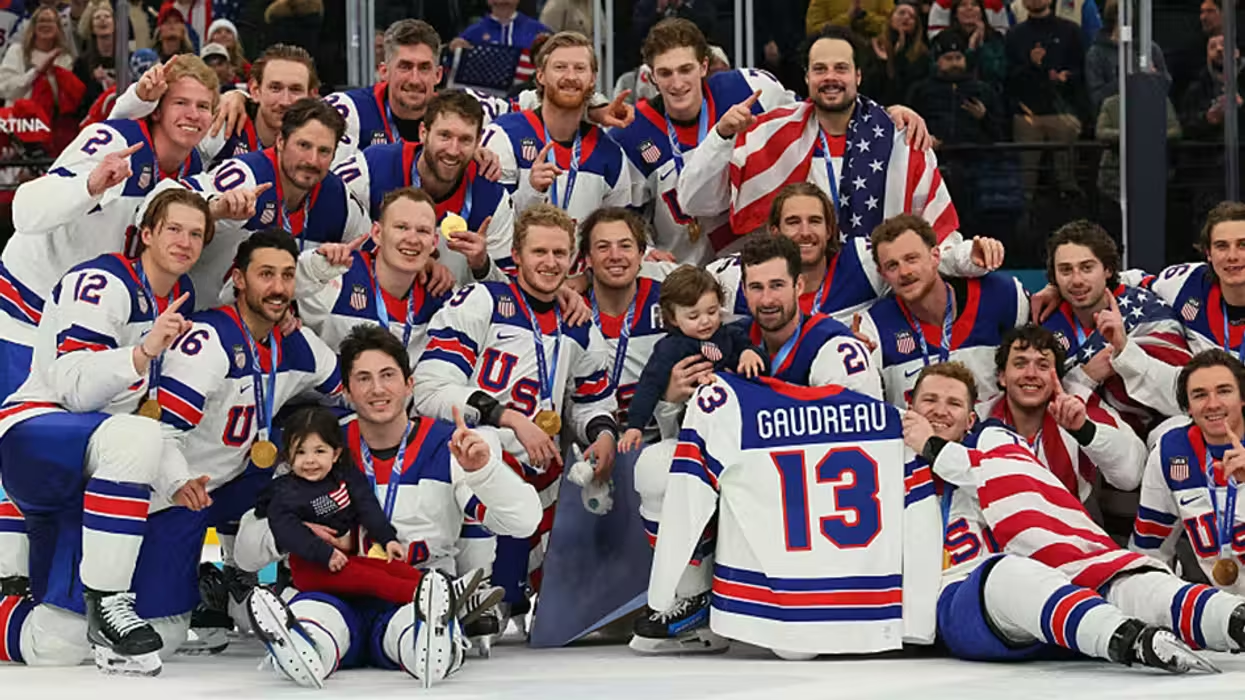
STOCKHOLM (AP) — At the "Egalia" preschool, staff avoid using words like "him" or "her" and address the 33 kids as "friends" rather than girls and boys.
From the color and placement of toys to the choice of books, every detail has been carefully planned to make sure the children don't fall into gender stereotypes.
"Society expects girls to be girlie, nice and pretty and boys to be manly, rough and outgoing," says Jenny Johnsson, a 31-year-old teacher. "Egalia gives them a fantastic opportunity to be whoever they want to be."
The taxpayer-funded preschool which opened last year in the liberal Sodermalm district of Stockholm for kids aged 1 to 6 is among the most radical examples of Sweden's efforts to engineer equality between the sexes from childhood onward.
Breaking down gender roles is a core mission in the national curriculum for preschools, underpinned by the theory that even in highly egalitarian-minded Sweden, society gives boys an unfair edge.
To even things out, many preschools have hired "gender pedagogues" to help staff identify language and behavior that risk reinforcing stereotypes.
Some parents worry things have gone too far. An obsession with obliterating gender roles, they say, could make the children confused and ill-prepared to face the world outside kindergarten.
"Different gender roles aren't problematic as long as they are equally valued," says Tanja Bergkvist, a 37-year-old blogger and a leading voice against what she calls "gender madness" in Sweden.
Those bent on shattering gender roles "say there's a hierarchy where everything that boys do is given higher value, but I wonder who decides that it has higher value," she says. "Why is there higher value in playing with cars?"
At Egalia — the title connotes "equality" — boys and girls play together with a toy kitchen, waving plastic utensils and pretending to cook. One boy hides inside the toy stove, his head popping out through a hole.
Lego bricks and other building blocks are intentionally placed next to the kitchen, to make sure the children draw no mental barriers between cooking and construction.
Director Lotta Rajalin notes that Egalia places a special emphasis on fostering an environment tolerant of gay, lesbian, bisexual and transgender people. From a bookcase, she pulls out a story about two male giraffes who are sad to be childless — until they come across an abandoned crocodile egg.
Nearly all the children's books deal with homosexual couples, single parents or adopted children. There are no "Snow White," ''Cinderella" or other classic fairy tales seen as cementing stereotypes.
Rajalin, 52, says the staff also try to help the children discover new ideas when they play.
"A concrete example could be when they're playing 'house' and the role of the mom already is taken and they start to squabble," she says. "Then we suggest two moms or three moms and so on."
Egalia's methods are controversial; some say they amount to mind control. Rajalin says the staff have received threats from racists apparently upset about the preschool's use of black dolls.
But she says that there's a long waiting list for admission to Egalia, and that only one couple has pulled a child out of the school.
Jukka Korpi, 44, says he and his wife chose Egalia "to give our children all the possibilities based on who they are and not on their gender."
Sweden has promoted women's rights for decades, and more recently was a pioneer among European countries in allowing gay and lesbian couples to legalize their partnerships and adopt children.
Gender studies permeate academic life in Sweden. Bergkvist noted on her blog that the state-funded Swedish Science Council had granted $80,000 for a postdoctoral fellowship aimed at analyzing "the trumpet as a symbol of gender."
Jay Belsky, a child psychologist at the University of California, Davis, said he's not aware of any other school like Egalia, and he questioned whether it was the right way to go.
"The kind of things that boys like to do — run around and turn sticks into swords — will soon be disapproved of," he said. "So gender neutrality at its worst is emasculating maleness."
Egalia is unusual even for Sweden. Staff try to shed masculine and feminine references from their speech, including the pronouns him or her — "han" or "hon" in Swedish. Instead, they've have adopted the genderless "hen," a word that doesn't exist in Swedish but is used in some feminist and gay circles.
"We use the word "Hen" for example when a doctor, police, electrician or plumber or such is coming to the kindergarten," Rajalin says. "We don't know if it's a he or a she so we just say 'Hen is coming around 2 p.m.' Then the children can imagine both a man or a woman. This widens their view."
Egalia doesn't deny the biological differences between boys and girls — the dolls the children play with are anatomically correct.
What matters is that children understand that their biological differences "don't mean boys and girls have different interests and abilities," Rajalin says. "This is about democracy. About human equality."








